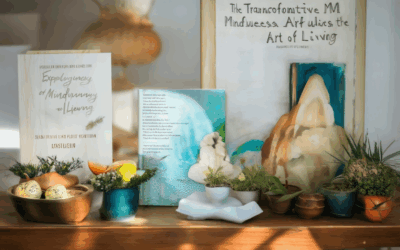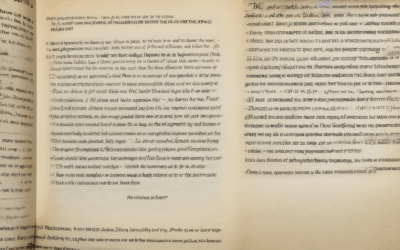Life often feels overwhelming, leaving us searching for ways to find peace and balance. One powerful tool for achieving this harmony is reflecting on gratitude—a practice that has been shown to foster joy, improve well-being, and create stronger relationships. Whether you’re seeking inspiration, looking to deepen your understanding, or wanting practical guidance, this article explores the essence of gratitude reflections through meaningful quotes, real-life examples, and a deeper dive into the four key aspects of gratitude that will leave you feeling more appreciative and fulfilled.
Key Takeaways
– Cultivate Gratitude: Practice daily gratitude reflection to enhance happiness and mindfulness.
– Journaling Benefits: Gratitude journaling boosts mental well-being and sleep quality.
– Express Appreciation: Regularly thank others to strengthen relationships.
– Mindful Moments: Pause to appreciate the present for increased joy.
– Gratitude in Routines: Incorporate gratitude into daily habits for a positive mindset.
– Creativity and Gratitude: Channel gratitude through creative activities like art or music.
– Challenges and Gratitude: Find silver linings during tough times to maintain hope.
– Qualities of Gratitude: Develop appreciation, generosity, and humility for a fulfilling life.
– Verbal Expression: Use heartfelt words to convey thanks effectively.
– Written Expression: Send meaningful notes to express lasting gratitude.
– Thoughtful Actions: Show appreciation through gestures that inspire others.
– Foster Positivity: Regularly express gratitude to cultivate a hopeful outlook.

What is an Example of Gratitude Reflection?
Gratitude reflection is the act of intentionally focusing on the positive aspects of life, recognizing the goodness around you, and appreciating the people, experiences, and circumstances that bring joy and fulfillment. Here’s an example of how you can practice gratitude reflection:
- Daily Gratitude Journaling : Start your day by dedicating a few minutes to write down three things you’re grateful for. These can be big or small. For instance, you might jot down:
- “I’m grateful for the warm coffee I drank this morning.”
- “I’m thankful for my friend who checked in on me yesterday.”
- “I appreciate the sunny weather today.”
- Morning Reflection : Many people find that beginning their day with gratitude sets a positive tone. Take a moment upon waking to reflect on what you’re thankful for before jumping into your routine.
- Mindful Acknowledgment : Throughout your day, pause to notice and appreciate the little moments that bring you joy. This could be a kind gesture from a stranger, a delicious meal, or a heartfelt conversation.
- Expressing Gratitude : Sometimes, simply expressing thanks to others can deepen your own appreciation. Whether it’s a heartfelt thank-you note or a sincere “thank you” in person, these moments can strengthen your connections and boost your mood.
By consistently practicing gratitude reflection, you can cultivate a mindset that focuses on positivity and abundance, which can enhance your emotional well-being and relationships.
- The Four A’s of Gratitude are:
- Acknowledgment : Recognizing and accepting your current situation, whether positive or challenging, helps you process emotions effectively.
- Appreciation : Focusing on the positives in your life fosters a sense of joy and motivation.
- Action : Taking steps to improve your situation based on what you’re grateful for can lead to growth and fulfillment.
- Attitude : Cultivating a positive mindset allows you to approach challenges with resilience and embrace opportunities with enthusiasm.

Embrace Gratitude: A Message of Appreciation and Growth
Gratitude is a powerful force that shapes our lives, fostering joy, connection, and personal growth. It reminds us to pause and recognize the blessings around us, big and small. Here’s an inspirational message about gratitude:
Life is a tapestry woven with moments of wonder and challenges. In every stitch, there lies an opportunity to appreciate the threads that bind us to the beauty of existence.
- The sun rising each morning, a reminder of renewal and hope.
- Fresh air to breathe, a gift from nature’s abundance.
- Loving relationships, the foundation of our emotional well-being.
- Learning opportunities, chances to grow and evolve.
- Small joys, like a good cup of coffee or a kind gesture, that bring unexpected happiness.
“When we give cheerfully and accept gratefully, everyone is blessed.”
— Xavier University Gratitude Quotes
Gratitude isn’t just about acknowledging what we have; it’s about embracing the journey of becoming who we aspire to be. It teaches us to see the world through lenses of kindness and possibility.
As you navigate life’s path, take a moment to reflect on the things that bring you fulfillment. Share your joy, and in doing so, you’ll inspire others to find their own light.
May your heart overflow with appreciation for the gifts you’ve been given. Embrace gratitude, for it is the bridge that connects us to our highest potential and the world’s endless possibilities.
Explore more stories of inspiration and reflection .

Reflecting Gratitude: A Comprehensive Guide
Gratitude reflection is a powerful practice that fosters happiness, mindfulness, and personal growth. Here are proven ways to cultivate and express gratitude:
Understanding Gratitude
Gratitude is the awareness of the good things in life. It involves appreciating the small moments, relationships, and achievements that bring joy and fulfillment. Practicing gratitude helps shift your mindset towards positivity and resilience.
Practical Ways to Reflect Gratitude
- Daily Gratitude List : Start each day by jotting down three things you’re grateful for. This could be something simple like a good meal, a kind gesture from someone, or a moment of peace.
- Gratitude Journaling : Dedicate a journal to documenting your daily gratitude. Over time, this habit creates a record of your journey and reminds you of positive experiences.
- Expressing Appreciation : Regularly thank people who have impacted your life. Whether it’s a friend, family member, or colleague, expressing thanks strengthens relationships.
- Mindful Moments : Pause during the day to notice and appreciate the present. This could be during a walk, while eating, or simply while taking a few deep breaths.
- Gratitude Practice in Routines : Incorporate gratitude into daily routines, such as before meals or bedtime, to develop it as a natural habit.
- Reflection Through Creativity : Engage in creative activities like writing poetry, painting, or composing music to channel feelings of gratitude.
- Gratitude in Challenges : Even during tough times, look for silver linings. This perspective helps maintain hope and resilience.
The Power of Gratitude Journaling
Research shows that gratitude journaling can significantly improve mental well-being. It helps reduce stress, improve sleep quality, and boost overall happiness. Consider starting a journal today to track your gratitude journey.
Living a Grateful Life
Cultivating a grateful lifestyle involves intentional choices. By focusing on what you have rather than what you lack, you foster a mindset of abundance and contentment. Share these practices with others to inspire them to embrace gratitude in their own lives.
For more insights and resources on fostering gratitude, visit Peter Spirito and explore their dedicated articles on personal growth and reflection.
What are the three qualities of gratitude?
Gratitude is a powerful emotional state that has been shown to have numerous benefits for individuals and society.
- Appreciation: Recognizing and acknowledging the good things in life, big or small.
- Generosity: Being willing to give back to others, whether through time, resources, or kindness.
- Humility: Understanding that success and happiness often come from others’ actions and efforts, fostering a sense of interconnectedness.

How to Express Gratitude in Words
Expressing gratitude in words is a powerful way to strengthen relationships and convey appreciation. Here are effective methods to do so:
- Verbal Expressions: Use heartfelt words during conversations. Say “Thank you” or “I appreciate it,” matching the situation’s warmth.
- Written Words: Write a note or letter. Start with “Dear [Name],” and share specific reasons for your thanks, ending with “Warm regards” or “Best wishes.”
- Thoughtful Actions: Show appreciation through gestures like sending a gift, helping someone, or offering support without expecting anything in return.
- Conclusion: Regularly express gratitude to foster positive relationships and a mindset focused on positivity.




0 Comments